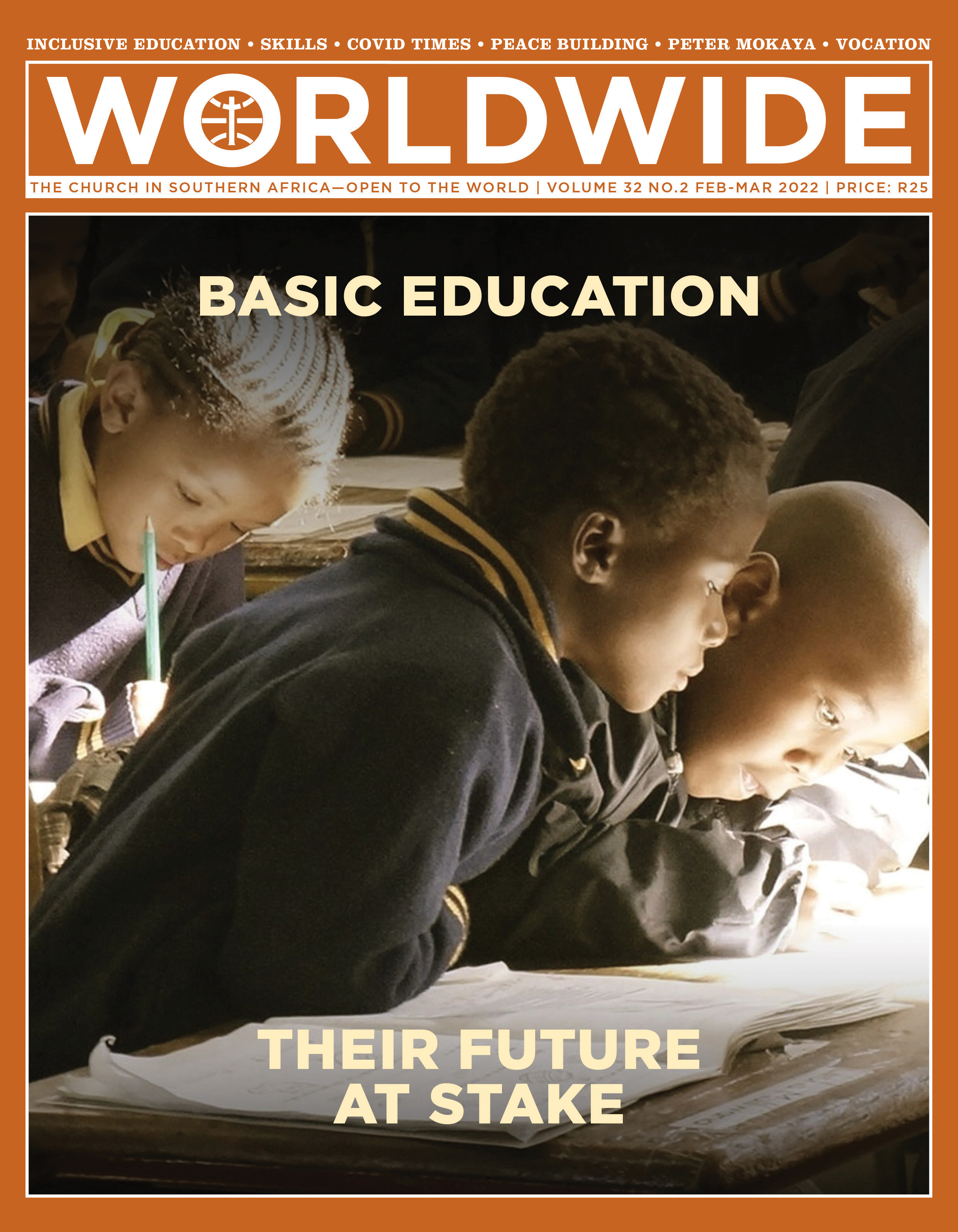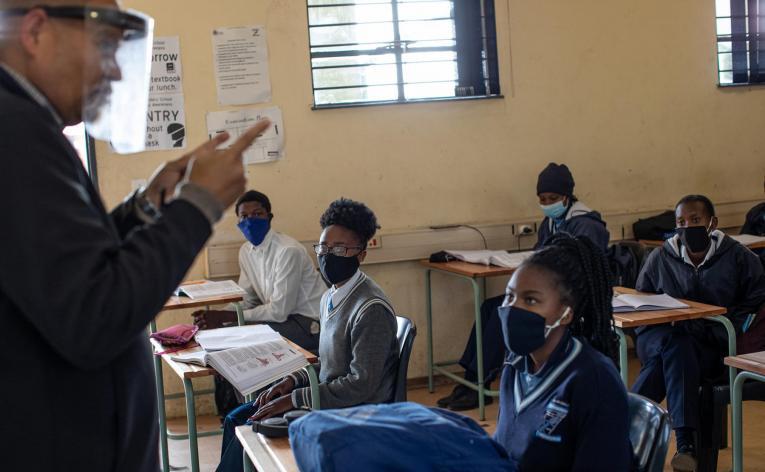
Basic Education Their Future At Stake
The front cover picture was certainly not taken during Covid times. We do not know its exact location, but it could be from any particular school in rural South Africa. What indeed the image of these children reflects is their eagerness for learning and doing it together. Their minds are surely full of dreams; their desires for a bright future cannot be frustrated. The task of offering them an inclusive and integral quality education can look gigantic, but each one’s contribution can make the miracle happen.
Radar

South Africa’s Basic Education Needs a Major Revision in 2022
Government often thinks big, but implements small. A teacher offers a few solutions to the myriad problems faced by an education sector bashed by Covid-19
BY Maryke Bailey | History teacher with experience in various education-related projects, Johannesburg, Daily MAVERICK
“WE’VE FAILED the year. We’re thinking of dropping out and getting internships instead. We can do car-washing and I can braid hair,” a 16-year-old tells me.
This conversation is top-of-mind as I think about what to expect in 2022. I have empathy for the Department of Basic Education (DBE) and the myriad problems it has to solve. We cannot divorce the injustices our school communities face from the injustices of our broader socio-economic and political context.
The DBE has several policies to remedy social evils. Programmes exist to improve infrastructure, social cohesion and school safety, and efforts are underway to increase learners’ access to transport, connectivity and learning resources.
As Ravi Naidoo, CEO of the Youth Employment Service pointed out, South Africa “has an overabundance of big-thinking policies and a critical shortage of implementation”. The DBE is no exception, and there is little indication this will change in 2022.
Needed urgency
The DBE is busy, but it confuses busyness with effectiveness. The unprecedented amount of learning time many children lost during the pandemic (50% to 75%) is a glaring concern, yet, reading the DBE presentations to parliament and scrolling through its social media feeds, one would think it was a minor setback that did not require immediate action. No clear communication from the department about how to catch up is forthcoming, beyond its own expressed confidence that its trimmed curriculum will help schools to get back on track in the next three years.
A lack of urgency about lost learning time sets the stage for what to expect in 2022. Unfortunately, by refusing to confront and prioritise the continued stagnation and atrophying of knowledge and skills in too many schools in 2021, we can be sure that the gap between bellow standard and well-equipped schools will continue to grow next year.
So, 2022 will probably be an easier year for resourced schools that have had time to refine their pandemic teaching methods, and their co-curricular activities can take on more pre-Covid normality; but many resourced schools will probably also continue to feel the pinch in terms of fee payments.
Bellow standard schools will have to face the huge learning backlog of the past two years. They are unlikely to have the support or know-how to deal with this effectively. Increased drop-out rates would not be a surprise, even if all schools returned to full capacity.
Measures
To reduce the gap between the haves and the have-nots next year, the DBE needs to play a crucial role:
1. Prioritising the issue of lost learning time—during official closures or rotations, and when classes are suspended because children and teachers have Covid—and assuming it will continue next year.
2. Re-imagining a differentiated, high-impact, innovative curriculum structure that can be offered to bellow standard schools. Some schools could suspend certain subjects and use those subject teachers to oversee academic support and enrichment. The DBE should reconsider how many subjects students need to take to matric, if only in the interim.
3. Identifying the core skills and foundational knowledge that different post-school institutions require and what bridging courses they can offer. Don’t burden all matriculants with content that only a minority will need. Matric exams should also be restructured to promote subject depth and skills development.
4. Seeing the potential for a lighter curriculum load that rotation and freed-up lessons can bring. Time outside the classroom should be seen as an opportunity to practise skills taught in in-person instruction. Younger children need tactile learning-through-play activities.
5. Businesses and civil society can come together, and collaborate with teachers to conceptualise, co-ordinate and implement an informal grassroots national enrichment programme. Volunteers (or deployed teaching assistants) can offer daily sessions to assist children to do the work set by teachers, and adults can facilitate enriching programmes—in a church marquee, a car park or an open field.
Time is running out: 66% of our youth are unemployed, yet teenagers with potential have more hope in looking for car-washing jobs than staying in school. A bleak 2022 awaits child education. Immediate, decisive and effective action is required.
| Dates To Remember |
|
February 1 – Blessed Benedict Daswa 2 – World Day of Prayer for Consecrated Life 4 – International Day of Human Fraternity 6 – International Day of Zero Tolerance of Female Genital Mutilation 8 – International Day of Prayer and Awareness against Human Trafficking 11 – International Day of Women and Girls in Science 11 – World Day of the Sick 13 – World Radio Day 20 – World Day of Social Justice 21 – International Mother Language Day March 1 – Zero Discrimination Day 2 – Ash Wednesday 3 – World Wildlife Day 8 – International Women’s Day 15 – St Daniel Comboni’s Birthday 20 – International Day of Happiness 21 – International Day for the Elimination of Racial Discrimination 21 – SA Human Rights Day 22 – World Water Day 24 – World Tuberculosis Day 24 – International Day for the Right to the Truth concerning Gross Human Rights Violations and for the Dignity of Victims 25 – International Day of Remembrance of the Victims of Slavery and the Transatlantic Slave Trade |
